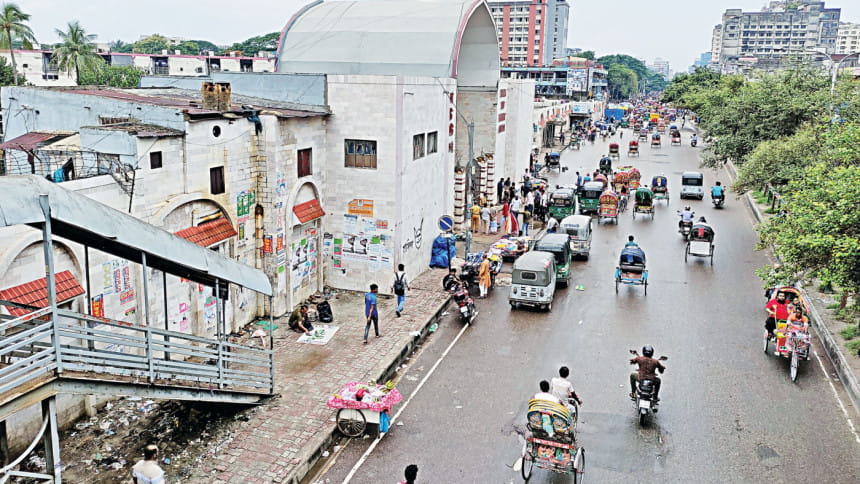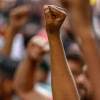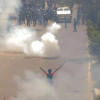Unrest hits retail sales hard

Malls and markets in Dhaka and other major cities have been hit hard by spiralling unrest across the country following the deaths of over 200 people, including students, during the quota reform movement in recent weeks.
Customers began to shy away from shopping as the overall environment worsened since violence flared in the middle of last month.
The situation led the authorities to impose a curfew and a three-day general holiday beginning on July 20.

"Our business has turned from bad to worse," lamented Uzzal Das, owner of Lanthon Fashion House at Aziz Super Market in the capital's Shahbagh.
He said sales started deteriorating from the beginning of July and customer turnout dipped since July 15.
"In the last two weeks, whenever I was able to open the shop, very few customers came. Sales have dropped by 95 percent compared to normal times," he said.
Businesses said customers were not in a buying mood after the situation deteriorated following the deaths of over 200 people, injuries to several thousand others and damage to public and private properties.
"Buyers don't come to shop for products at all," said Khalid Mahmood Khan, co-founder of Kay Kraft, a retailer of fashionwear, accessories and home textiles.
"Products are not being sold online either. There could be nothing worse than this. It is better to keep shops shut than to keep them open because opening a shop has some fixed costs. Those aren't incurred if the shop is closed."
Retailers were dealt the blow less than a year after they contended with losses for more than a month in the face of hartal and a countrywide blockade enforced by the BNP and its allies in the run-up to the parliamentary elections in January this year.
Khan added that the pandemic had caused long-term damage to their businesses prior to that.
An official of one of the top clothing retailers, wishing anonymity, said sales had fallen by 95 percent in the last 15 days.
A top official of a leading electronics and home appliance retailer, which has nearly 70 outlets, said, "Sales of electronic items have fallen significantly in Dhaka and outside the capital for over two weeks amid panic and unease among people.
"There have been almost no sales at any of our outlets."
He added that they were keeping their outlets open for three to four hours depending on location.
"Although we do not have revenue, we have fixed expenditures such as rent, staff salaries and utility bills, which will have to be paid by the end of the month," he said.
Firoze Mohammad, chief operating officer of Apex Footwear, said sales dipped since the second half of July.
"Sales usually decline during this type of situation," he said. "Customers are not in the buying mood in such times."
Helal Uddin, president of the Bangladesh Shop Owners Association, said businessmen are enduring a very tough time.
"There are almost no customers although our stores are open."
Abu Obayed Rony, owner of Fire Fashion, a retailer of readymade clothes at Noorjahan Super Market in the New Market area, said his daily sales stood at Tk 3,000 to Tk 4,000 in the last two weeks.
"When everything remains normal, we can log about Tk 30,000 in daily sales."
A senior official of ACI Motors said, "We thought business would return to normal in a short time. But now it is tough to predict how long it will take for the situation to become normal."


 For all latest news, follow The Daily Star's Google News channel.
For all latest news, follow The Daily Star's Google News channel. 








Comments